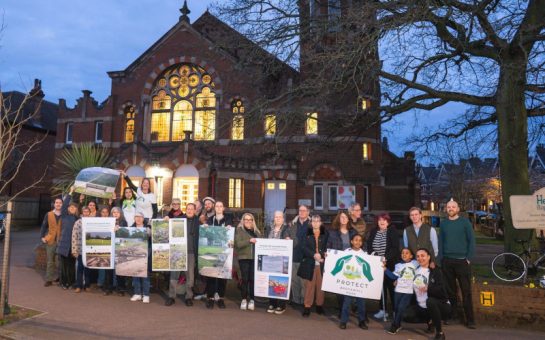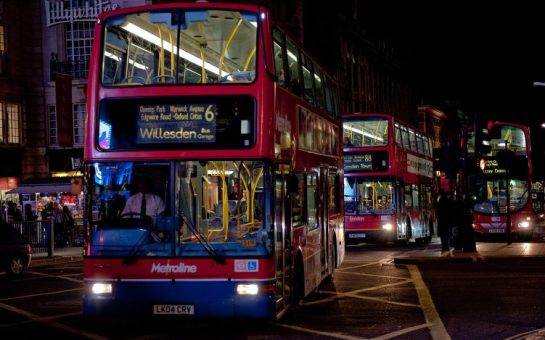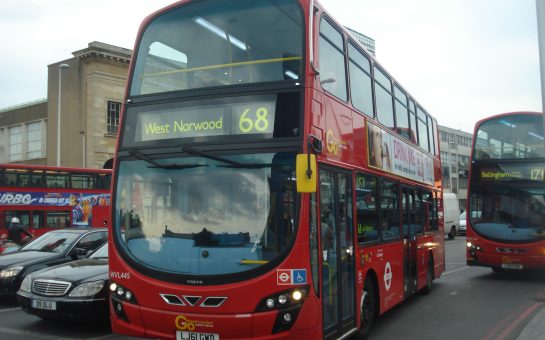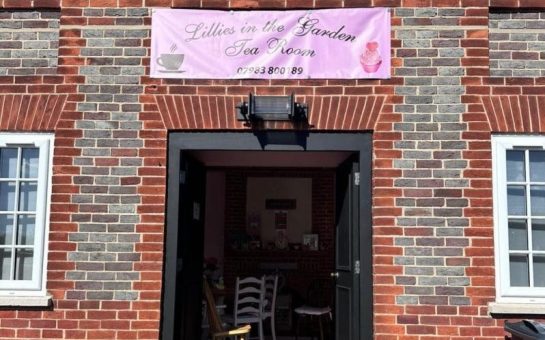“It may be called lockdown, but for them it is actually imprisonment.”
The director of a migrant domestic workers’ charity has warned lockdown has worsened working conditions for many migrant domestic workers.
Marissa Begonia, of the Voice of Domestic Workers, explained how some who were victims of modern slavery have found themselves trapped inside a house again.
How some have found themselves more vulnerable to catching coronavirus.
How others have found themselves without work.
She spoke of how even before the first lockdown in March, migrant domestic workers were already vulnerable to exploitation, as the current domestic workers visa ties them to their employer making it difficult for them to negotiate better working conditions or escape from abusive employers.
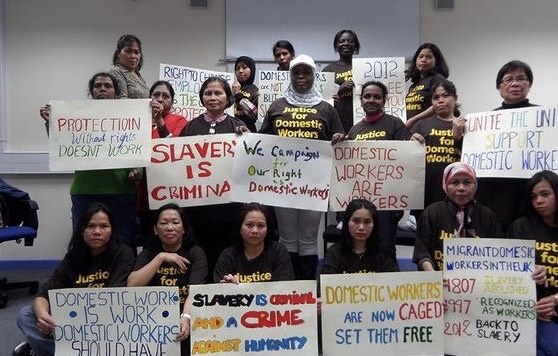
Referred to as the hidden workforce as their work and abuses take place in the home-hidden from the public, migrant domestic workers are a workforce that has largely been abandoned by the Government over the course of the pandemic.
Worse working conditions
Lyn, a migrant domestic worker who was rescued by the police from an abusive employer, finds herself in a similarly abusive situation with her new employer because of lockdown.
Since March, she has not been allowed to leave the house that she works and lives in.
Neither has she had a day off since then, nor had a proper night’s sleep as she looks after an elderly man and has to wake up every hour to change his catheter bag.
Her employer told her they would fire her if she left the house.
She has not been paid for months.
She said: “It’s like I’m trapped again and I’m in the cage again.”
Avril Sharp, Policy and Casework Officer at Kalayaan, a charity which works with migrant domestic workers to help them access their rights, said the charity had received reports of increased exploitation due to lockdown measures.
She said: “People have had to endure really restrictive and difficult working conditions, because they know that there is no support available to them.
“They have had to put up with lots of poor treatment because they know that that’s the best thing for them.”
Losing your job means losing your home and losing your visa
Avril said that the charity is also worried about the migrant domestic workers who have lost their jobs over the course of the pandemic.
She added that when migrant domestic workers get dismissed, they are completely on their own, as they are normally live-in workers so being dismissed means they have nowhere to live.
She said: “The Government have made no concessions to support these workers and have said they must continue to renew their visa as normal. But this is not a normal situation.”
According to a survey done in June of the pandemic’s impact on Filipino migrants, 56% of participants lost all work and income over the course of the pandemic.
Participants in the survey were Filipino migrants with precarious immigration status, and most participants were domestic and care workers.
While the furlough scheme provided economic security for most workers, for undocumented migrants the reality is “no work, no pay”.
The study also showed that 51 of the 74 participants had a difficulty or inability to pay rent and 32 had a difficulty or inability to buy daily necessities such as food.
The Voice of Domestic workers set up a hardship fund, and many of its 1,500 members are only managing to survive the pandemic because of the financial support the fund provides.
More vulnerable to catching coronavirus
Kelly, a migrant domestic worker who was rescued from an abusive employer who forced her to work 24 hours a day, believes that she caught coronavirus working for a new employer who broke the lockdown rules.
She said that she worked for an employer who had 20 guests round for Christmas.
When the guests arrived, Kelly asked her employer why they were breaking the rules and they replied saying if she did not work, she would not get paid.
Kelly is certain that this is where she picked up the virus.
Kelly was clearly very ill as she had a bad cough when we spoke over Zoom.
She said that she lives with seven housemates who are also undocumented, who do not want her to go to the hospital or even get a test delivered to the house, as they are scared the authorities will find out about them and they will get deported.
She cried as she said: “I am really scared. I really want to go to the hospital but I cannot. I want to check with the doctor because in the evening I feel unwell with body pain and chest pain but I don’t know what I can do.”
Xia, another migrant domestic worker, was rescued from an employer who locked her in the house, called her animal names and watched her work via CCTV cameras.
She also believes she caught coronavirus from her new employer, who broke the rules by having several guests round every day during the ongoing lockdown.
Her employer forced her to continue working in spite of being ill with a high fever, cough and muscle pain.
What have the government done to protect migrant domestic workers over lockdown?
Avril said that the Government response to migrant domestic workers’ particularly vulnerable position over lockdown had been non-existent, as they have failed to introduce any safeguarding measures for the group.
She said: “In the absence of any safeguarding measures for our client group, they will either have to accept any form of work that is available to them, whether or not that comes with any abusive conditions attached to it, or they will be left completely destitute, because there is no support available to them.”
The Domestic Workers in a Private Household visa, which is the visa that most migrant domestic workers use, has a no recourse to public funds attached.
Avril explained that this makes migrant domestic workers less likely to leave an abusive employer, especially now over lockdown.
Kalayaan sent a letter to the Ministers of Immigration and Safeguarding in April 2020 recommending safeguarding measures be put in place for migrant domestic workers.
The Home Office responded to Kalayaan’s letter on 13 May 2020 but Avril said that the response failed to address the specific issues and concerns raised in the letter.
Is the current system failing to protect migrant domestic workers?
Dr Ella Parry-Davies, a post-doctoral researcher whose current research looks at migrant domestic workers experiences, explained the problems with the current Domestic Workers in a Private Household visa.
She said: “Currently, in the UK, the visa system for migrant domestic workers ties their status to specific employers.
“That makes it very difficult, if not impossible for domestic workers to negotiate for their rights, to demand fair and prompt payment, to stipulate their working hours.”
Migrant domestic workers are able to change employer while their six-month visa is still valid.
But Avril explained that the six-month time limit on the visa means that it still ties workers to their employers in practice even though the Home Office claims it does not.
Many migrant domestic workers become undocumented once that six months has elapsed and once undocumented, migrant domestic workers become more vulnerable to forced labour and abuse.
The Voice of Domestic Workers launched a petition, which is open for signatures until the 27th of February 2021, to re-instate the pre-2012 visa available to overseas domestic workers.
This would allow migrant domestic workers to renew their visas and ensure they had a route to settlement.
Marissa explained how the National Referral Mechanism (NRM), which is the government’s framework for offering support to victims of modern slavery, is problematic in three main ways.
First, it is domestic migrant workers’ only option as a way out of their abusive working conditions.
Second, the NRM takes a long time to reach its decisions.
In Marissa’s experience in supporting people through the NRM, it can take up to five years which can leave workers in limbo.
Lastly, the burden of proof falls on the victim, and migrant domestic workers normally do not have evidence that they were abused or evidence that they did not receive a salary.
Lyn cried as she explained how she received negative conclusive grounds that she was a victim of modern slavery from the NRM even though she was rescued from her abusive employer by the police.
Receiving negative conclusive grounds means she does not get the two-year renewable visa that those who receive positive conclusive grounds would get.
Lyn said that the Home Office made the decision without talking to her about the abuse she suffered.
The Home Office told her that they decided she was not a victim of modern slavery because the employer provided evidence that she was happy whilst working for them.
They showed the police a photo of her smiling with the employer and their family. Lyn said she only smiled because she did not want her family back home to see the photo and worry.
The Home Office were contacted for a comment on this story.
They responded by sending across a link to the information page on the Domestic Workers in a Private Household visa, which can be found here, and a link to a fact sheet on the Modern Slavery Act, which can be found here.
And you can read about a collective trying to help Latinx communities and migrants facing similar issues here.
The names of Lyn, Kelly and Xia were changed for the purposes of the article in order to protect their identities.
